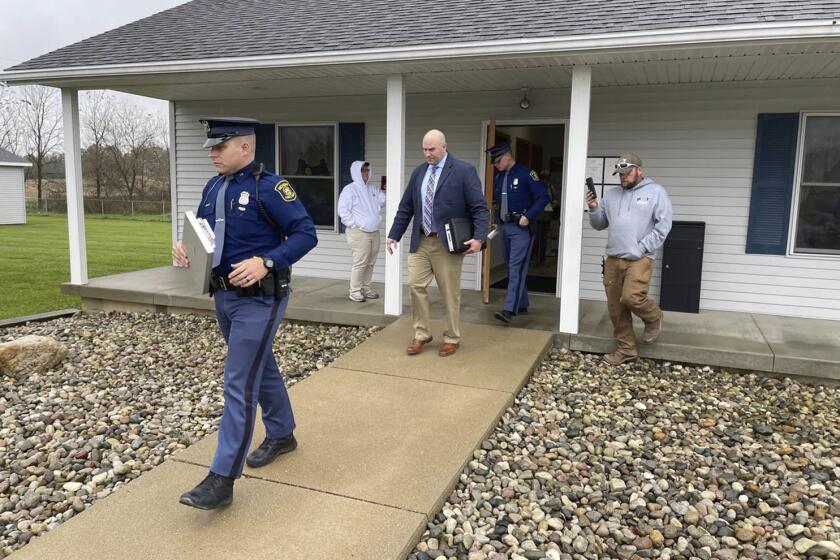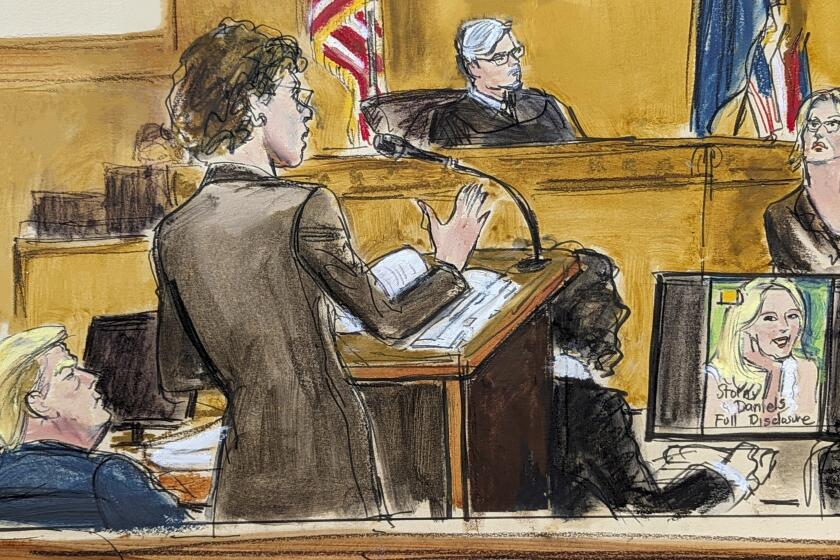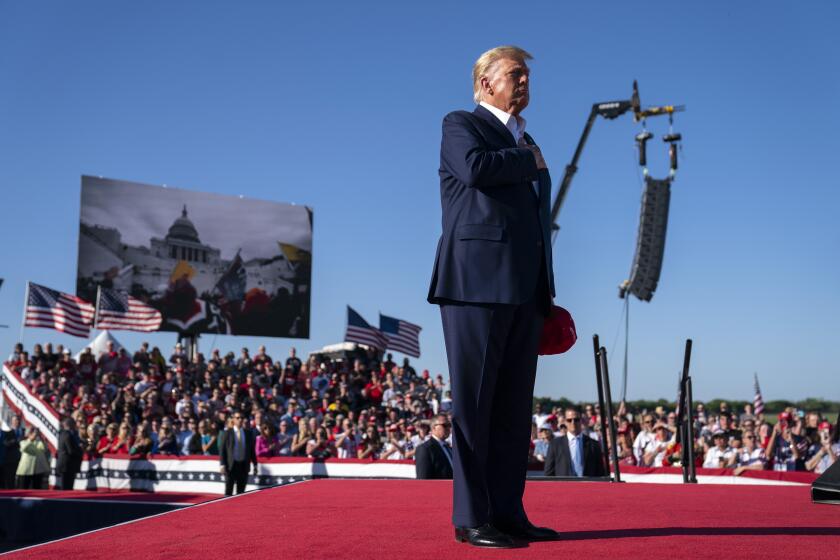House and Senate Vote to Boost Fund Insuring Deposits
The House and Senate voted Thursday to provide $70 billion in new borrowing authority to bolster the faltering deposit insurance fund that protects savings and checking accounts of most Americans.
However, the two chambers of Congress disagreed sharply on the issue of expanded new powers for banks, a key objective of the Bush Administration. The Senate approved by voice vote a comprehensive measure allowing banks to move across state lines and to expand their ability to sell insurance.
The House, having struggled with the issue and defeated two bills in the last two weeks calling for broad powers, took a much more limited approach. Its final bill, adopted by a vote of 344 to 84, was focused strictly on aid for the insurance fund and expanded powers for federal financial regulators.
The two bills now go to a House-Senate conference committee to iron out the differences. There, the outlook for some of the Senate provisions is uncertain.
The contentious debate on broad banking reform has been a major disappointment for the Bush Administration, which has failed to unite bank, insurance, securities and other interest groups in backing a comprehensive bill. The Administration, frustrated by the prolonged debate, did not oppose the narrow House bill on Thursday, hoping that it could obtain some of the Senate provisions in conference.
But the interstate banking provisions adopted by the Senate will face strong opposition from House members, who will argue that their colleagues are unlikely to accept this measure. Under the Senate bill, banks would be able to move across state lines by acquiring existing banks or by opening new branches. The measure, however, would give individual states the power to restrict some interstate banking.
The Senate bill also contains a highly controversial amendment imposing a 14% ceiling on the interest rates charged for credit cards.
But a key Republican senator, Jake Garn of Utah, said President Bush would veto any banking bill with an interest rate cap. “It will not become law,” he promised. “So everybody stop squirming out there. We are not going to intervene in the free market.” Garn and Sen. Donald W. Riegle Jr. (D-Mich.), chairman of the Senate Banking Committee, predicted that the interest rate cap would be dropped from the bill during the House-Senate conference.
There is little enthusiasm in either house for further struggles over the contentious issue of new business powers for banks.
“We need to live up to our promise to protect depositors,” said Rep. Chalmers P. Wylie of Ohio, the ranking Republican on the House Banking Committee. “Twice we have failed to pass a bill.”
“Nobody got everything they wanted, not the banks, not the insurance industry, not the Administration,” said Rep. Marge Roukema (R-N. J.). “But this is the best we can do at this time.”
The major goal when the House and Senate develop the final version of the legislation will be the welfare of the deposit insurance fund, the protector of accounts up to $100,000. The fund, which is tapped to pay off depositors of failed banks, could be exhausted by year-end.
Going home without voting to bolster the deposit fund would have been unthinkable, said Rep. Frank Annunzio (D-Ill.). “We cannot delay any longer,” he said. “If one bank fails and we do not have money to pay off (depositors), it would set off a firestorm.”
Both the House and Senate bills give the Federal Deposit Insurance Corp. authority to borrow $70 billion for the bank insurance fund. The money would be repaid with the annual premiums banks provide to the insurance fund.
However, it is uncertain whether the banking industry will be healthy enough in the next few years to generate sufficient profits to pay the premiums needed by the fund. If the banks cannot pay the $70 billion, a taxpayer bailout would become inevitable.
“There’s risk in this bill,” acknowledged Rep. Bruce F. Vento (D-Minn.). “We’re loaning $70 billion. We hope the banks are healthy enough and they can pay it back,” he said.
Hoping to avoid a repetition of the savings and loan crisis, in which the taxpayers will spend $500 billion or more to pay off depositors at hundreds of failed thrifts, members of both the House and the Senate voted to give federal regulators new powers to intervene at weak banks.
Federal banking agencies would be required to conduct annual on-site examinations at all banks, and the banks’ outside independent accountants would furnish annual audits of management performance.
Regulators would have expanded authority powers to move quickly when they think a bank is falling into financial difficulty. Riegle said that the new policy calls for “early intervention” to prevent another thrift-like debacle, in which hundreds of institutions failed after making highly risky investments.
Under both bills approved Thursday, regulators could force banks to lower the interest rates paid on deposits if they think the bank is growing too rapidly and pouring money into dubious investments.
Both bills also would end the “too big to fail” policy under which all deposits, even those above $100,000, have been unofficially protected to prevent disruption to local economies.
The Federal Reserve Board would be given expanded powers to prevent a recurrence of the type of scandal spawned by the Bank of Credit & Commerce International, that secretly obtained control of two American banks and was involved in money laundering.
More to Read
Get the L.A. Times Politics newsletter
Deeply reported insights into legislation, politics and policy from Sacramento, Washington and beyond. In your inbox three times per week.
You may occasionally receive promotional content from the Los Angeles Times.






